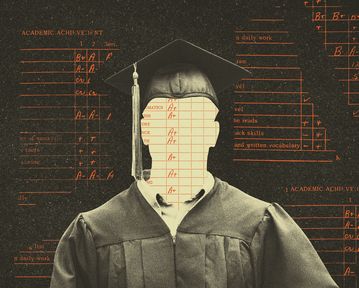On ‘whiteness’ and the implosion of the meritocracy – Ross Douthat in NYT:
‘The scholar Peter Turchin of the University of Connecticut, whose work on the cycles of American history may have predicted this year’s unrest, has a phrase that describes part of this dynamic: the “overproduction of elites.” In the context of college admissions that means exactly what it sounds like: We’ve had a surplus of smart young Americans pursuing admission to a narrow list of elite colleges whose enrollment doesn’t expand with population, even as foreign students increasingly compete for the same stagnant share of slots.
Then, having run this gantlet, our meritocrats graduate into a big-city ecosystem where the price of adult goods like schools and housing has been bid up dramatically, while important cultural industries — especially academia and journalism — supply fewer jobs even in good economic times. And they live half in these crowded, over-competitive worlds and half on the internet, which has extended the competition for status almost infinitely and weakened some of the normal ways that local prestige might compensate for disappointing income.’
(…)
‘Imagine yourself as a relatively privileged white person exhausted by meritocracy — an overworked student or a fretful parent or a school administrator constantly besieged by both. (Given the demographics of this paper’s readership, this may not require much imagination.)
Wouldn’t it come as a relief, in some way, if it turned out that the whole “exhausting ‘Alice in Wonderland’ Red Queen Race of full-time meritocratic achievement,” in the words of a pseudonymous critic, was nothing more than a manifestation of the very white supremacy that you, as a good liberal, are obliged to dismantle and oppose? If all the testing, all the “delayed gratification” and “perfectionism,” was, after all, just itself a form of racism, and in easing up, chilling out, just relaxing a little bit, you can improve your life and your kid’s life and, happily, strike an anti-racist blow as well?
And wouldn’t it be especially appealing if — and here I’m afraid I’m going to be very cynical — in the course of relaxing the demands of whiteness you could, just coincidentally, make your own family’s position a little bit more secure?
For instance: Once you dismiss the SAT as just a tool of white supremacy, then it gets easier for elite schools to justify excluding the Asian-American students whose standardized-test scores keep climbing while white scores stay relatively flat. Or again: If you induce inner-city charter schools to disavow their previous stress on hard work and discipline and meritocratic ambition, because those are racist, too — well, then their minority graduates might become less competitive with your own kids in the college-admissions race as well.
Not that anyone is consciously thinking like this. What I’m describing is a subtle and subconscious current, deep down in the progressive stream.’
Read the column here.
As more often is the case, Mr. Douthat has a point.
We might agree that the meritocracy has failed, or at least hasn’t lived up to its wonderful promises, but there is next a phase, a next step. All achievements are dubious, resulting from unethical and undeserved privileges.
Anti-racism as an excuse to drop out of the race, sounds wonderful.
A decade or three ago, the Bhagwan offered such an excuse, also with a tad of spiritualism and the promise of free and wonderful sex.
But where it will end Mr. Douthat fails to mention.
You can abandon the idea of achievement as a racist or a bourgeois notion, and you yourself have overcome your racist and bourgeois habits, that’s wonderful, but the idea of achievement itself won’t disappear, the competition is not going away, even when you decide for valid or less valid reasons to abandon the competition.
If the “white people” (whatever we mean by that) burden themselves with quick and steep downward social mobility will they become less racist? I don’t think so.
But that’s not what it’s all about.
Downward social mobility is not longer presented as a result of bad luck, you played the roulette and you lost, but as an ethical choice. And this, and again Mr. Douthat sees quite clearly here, is a very religious concept, it is a religious marketing tool.
You might be poor, you might live without designer clothes or almost without clothes at all, you might live without decent shoes, but your soul is pure, and maybe for that reason attractive people are willing to have sex with you.
Christianity is always making a comeback, most of the times without Christ, sometimes with the ghosts of Marx, sometimes even without Marx.
(I’m still waiting for the combination of Christianity and Groucho Marx.)
